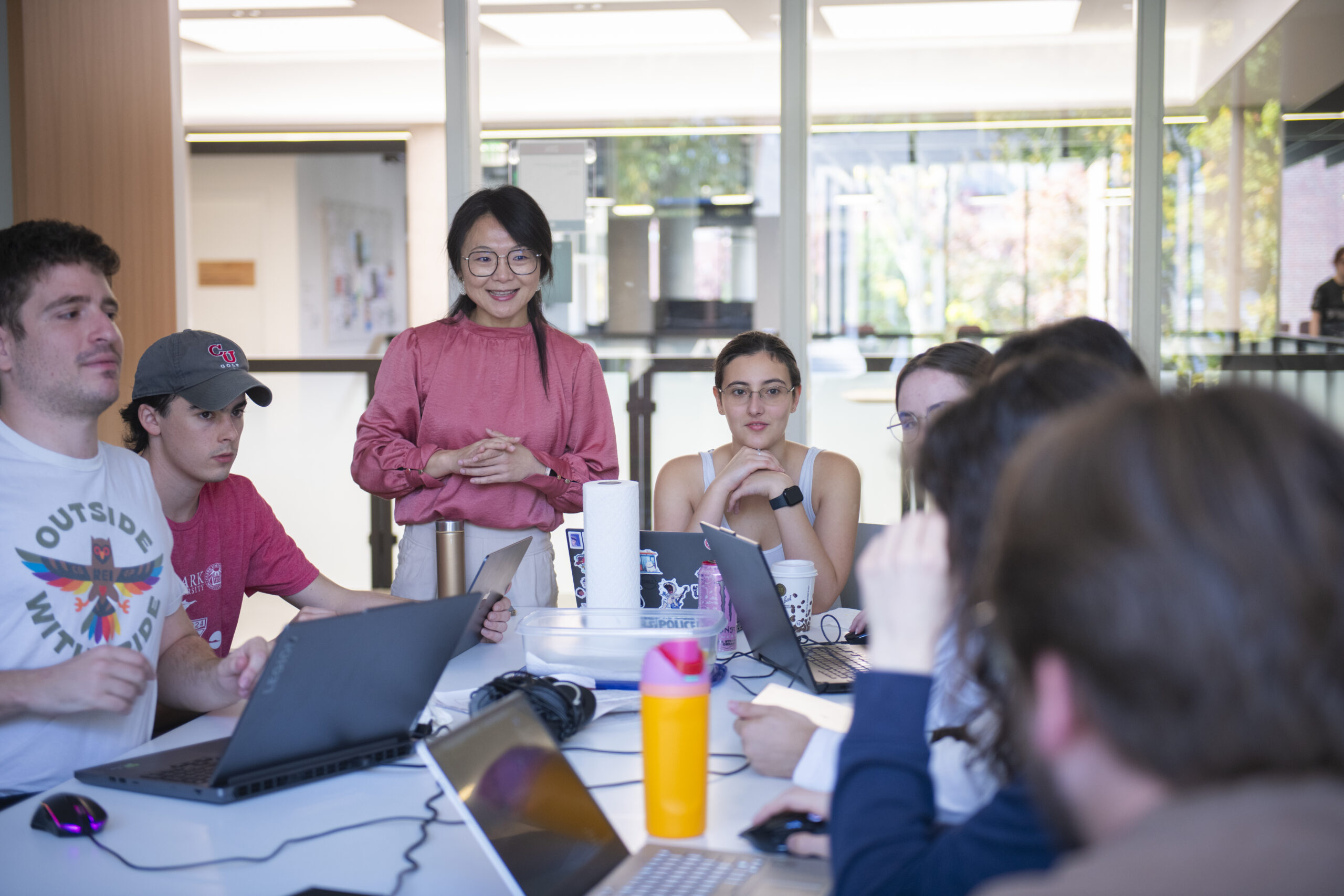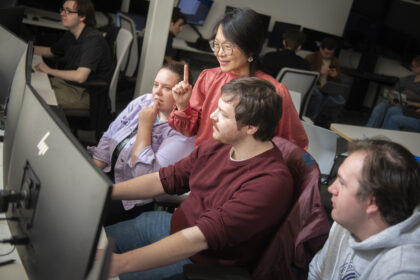Exercise for senior citizens — with an AI boost

Professor Yu-Han Wang instructs Becker School of Design & Technology students during Game Studio.
For Professor Yu-Han Wang, specializing in multimedia design has become an avenue to focus on health care-centered media.
“I think the main reason I started researching this is because of my parents. They’re getting older and I want them to be healthier and to prolong their quality of life,” says Wang, an associate professor of multimedia design at the National Taichung University of Science and Technology in Taiwan. She is currently teaching Game Studio and conducting extended reality (XR) research at Clark’s Becker School of Design & Technology through the Fulbright Scholar-in-Residence Program.
Wang, who earned her Ph.D. in design research from Brunel University of London, is involved in three distinct research projects. The first is a game-based exercise program for the elderly to make movement more enjoyable and achievement-oriented.
“I want to help my parents and people like them actively participate in exercise rather than being pushed to exercise. If we are forced to do something, we will resent it,” says Wang.

The second project is a gaming program, designed to incorporate gentle physical therapy exercises for those suffering from frozen shoulder. The third piece is a sign-language interactive system supported by artificial intelligence (AI) and mixed reality (MR) technology. The system Wang and her team are designing will provide an immersive learning environment for those learning sign language to communicate with people who are hearing-impaired.
These emergent technologies are significant to Wang’s research. Virtual and augmented reality lend themselves well to rehabilitation-based exercises because the technology can monitor the body’s movements, she says. With AI, these programs can learn each individual’s locomotion abilities, physical challenges, and medical diagnoses in real-time, and adjust the program accordingly.
“With the emergence of any new technology, there will be people who are afraid of it, especially the target group of my research focus,” she says. “They are still afraid of using technology because they don’t always understand it.” Wang is continually investigating more avenues in which these technologies can improve the quality of life of those who may initially be hesitant to use them.
Wang was inspired to incorporate advanced technology into her interactive experiences while conducting research in Japan in 2019. With that in mind, she and her students invited more than 100 Taiwanese senior citizens to try an exercise game created by Nintendo for the Switch gaming console. Most of the participants greatly enjoyed having the students teach them how to operate the consoles and navigate the game, she notes.
“I think AI-oriented products might have the strength to help those unfamiliar with technology because they respond naturally to the user’s stimulus,” Wang says. “However, while these products can enhance usability, it is equally crucial to address senior citizens’ emotional experiences when designing digital interactions for them.”
Study game design at Clark’s Becker School of Design & Technology

